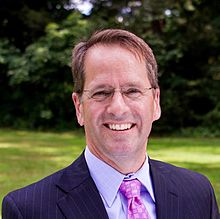NH’s School Spending Surge 3rd Highest in US. NHDems Want More.

In 2002, the first Harry Potter movie hit the big screen, Gov. Jeanne Shaheen was making her first (unsuccessful) bid for U.S. Senate, and Nelly was singing it is “Hot in Herre.”
And the per-pupil school revenue for a New Hampshire public school student was $14,184.
Twenty years later in 2022, that number was $22, 738 — an increase of 60.3 percent and the third-biggest jump in inflation-adjusted revenue per student in the country. Only Illinois (61 percent) and New York (81.4 percent) rose more.
And yet, despite the explosion in spending, New Hampshire Democrats at the state and local level say taxpayers need to pay even more.
In Nashua, the school board has approved a new $131,061,021 budget, a 4.49 percent increase over the prior year’s operating budget, on top of record spending.
In Concord, residents will see a 2.9 percent education tax increase thanks to the $107.9 million school budget. That total is 1.58 percent higher than Concord’s previous school budget — once again, already a per pupil record.
Manchester is also considering a record $227.9 million school budget. Mayor Jay Ruias calls the school total a compromise figure, and part of his overall effort to get the school and city budgets under control after years of former Mayor Joyce Craig’s leadership.
At the state level, both former Manchester Mayor Joyce Craig and Executive Councilor Cinde Warmington support even more tax dollars for public schools. Craig is running on a pledge to “boost the state’s investment in public education.” And Warmington wants to shut down Education Freedom Accounts entirely and add that funding to public schools.
Neither Craig nor Warmington responded to a request for comment about soaring school spending, or the fact that it coincides with standardized test scores that are flat or falling.
The reason for New Hampshire’s high rank in per pupil spending is its decline in enrollment.
“Since 2002, student enrollment numbers in the Granite State have dropped from 207,684 to 165,095, which represents a decrease of 42,589 public school students, or about a 20.5 percent decline during the past 21 years,” the state Department of Education reported last year. The state’s public schools lost another 2,262 students (1.4 percent of enrollment) in 2022 alone.
Drew Cline, president of the Josiah Bartlett Center for Public Policy, says nobody should be surprised by these numbers.
All that spending for public school students comes as the state faces a potentially expensive court case on education funding. The ConVal decision, currently appealed to the New Hampshire Supreme Court, almost doubles the state’s portion of per pupil spending.
The ConVal decision increases the state’s adequacy aid grant $4,100 per student to at least $7,300. If the decision stands, it would represent a minimum $500 million annual tax increase.
Both Craig and Warmington have been endorsed in prior political campaigns by the state’s two teachers unions, the American Federation of Teachers and the National Educators Association. The union presidents, AFT’s Deb Howes and the NEA’s Megan Tuttle, also did not respond to a request for comment.
Warmington, Craig, and the unions, are all staunch opponents of New Hampshire’s Education Freedom Accounts, the school choice program that allows families to opt out of the public school system.
“We don’t take taxpayer dollars to subsidize private schools,” Warmington told WMUR last year.
Both of Warmington’s children attended the elite Tilton School for secondary education, an independent boarding and preparatory school in New Hampshire. Tilton charges $38,500 for day school and nearly $67,000 for boarding school.
Craig said earlier this year if elected governor, her first budget would see an increase in spending for public schools.
“We need to fund public education in this state,” Craig said. “Right now, we are not.”




